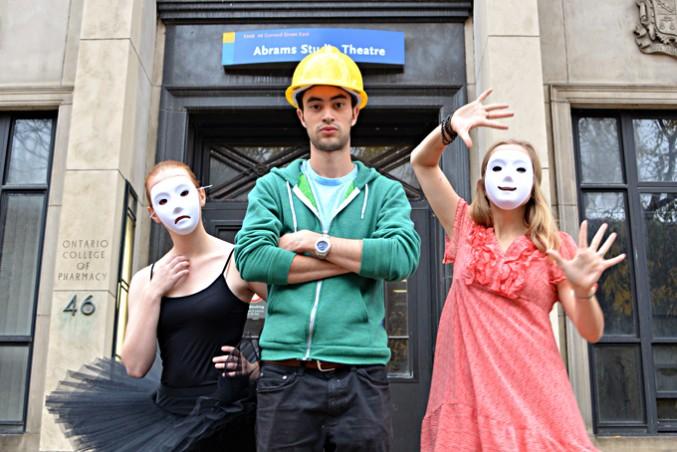In the second installation of the Breaking In series, Alex Heck looks into the trials and tribulations of finding a job after graduating from the performance acting program
Staff and students of the Ryerson Theatre School’s (RTS) acting program are well aware of the taboo around getting an arts degree.
They’ve heard it, time and time again, how competitive the field is, how specialized their skills are. But they don’t really care.
Dylan Brenton came to RTS to do what he wanted to do.
“It satisfied me,” he said, “and it puts me on a path of constantly doing that throughout my whole life.”
Brenton and his classmate Hugh Ritchie are both in their fourth year of the acting program and neither of them are afraid of finding jobs once they graduate. Both were fortunate enough to participate in productions outside of school during the summer months, he said, which gave them a much needed “taste of the industry.” Brenton explained that the key to success was to constantly be working on something, and that RTS prepares students for that highly competitive freelance aspect.
Much of the stigma around work in the arts is based on the instability of jobs. Being an actor often means doing a lot of freelance work, going from one show, commercial or movie to the next.
The trouble comes when the next gig doesn’t appear.
“When you’re out in the real world you have to force yourself to constantly have something,” Ritchie said. There is a constant push to make sure that there is more work ahead, he added.
While in school, there is a sense of security that there will always be another project, Ritchie said, the trick is making sure you’re prepared for a time when there isn’t that security.
“They train us to create our own jobs,” he said.
The program does put emphasis on being entrepreneurial in the field, said Peter Fleming, production coordinator at RTS.
Many students have graduated and then teamed up with production grads and dancers to form their own theatre companies, he said.
“The three programs [acting, dance and production] work side by each on all the shows we do,” Fleming said. “Performers get to know who they can rely on as technicians and then they hire each other when they get outside the school.”
Peter Katz, a Juno-nominated musician who graduated from Ryerson’s acting program more than 10 years ago, believes that this was the key to his own success, not as an actor, but as a musician.
At Ryerson, Katz cut his teeth writing his own music for the theatre school. This is where he found his passion. The core skills he learned at Ryerson were transferrable to another career in the arts because he was using the skills he learned about harnessing his creativity, self-motivation and personal branding.
Alex Gilbert, costume designer for RTS, said that the skills learned in the arts are some of the most valuable because they are highly transferrable to other careers.
She agrees that there is anxiety surrounding freelancing and the lack of permanence in jobs.
“If you get an acting job, chances are the job isn’t going to be 10 years,” Gilbert said. “It’s going to be how long the show is.”
The issue around finding a job is not about what you know, it’s about who you know, she added, as well as having the right attitude to succeed in the highly-competitive industry.
Each year, thousands of students graduate from arts programs across the country and all apply for the same jobs. When Katz was in his first year, he recalls one instructor telling the class that in 10 years, only two of them would be working in this profession.
“There’s more than just two of us out there still,” he said.
Katz said that his peers who have succeeded have done what he has done. They have promoted themselves and undertaken some personal branding. Others, of course, have gone out and found jobs in other industries but many others remain.
Although Katz admits there is a definite level of anxiety surrounding the insecurity of his line of work, it allows him to do what he loves, which is acting.
“I wouldn’t see the point of living if I didn’t get to do this,” he said. “This is who I am, I couldn’t be happy doing anything else.”










Leave a Reply